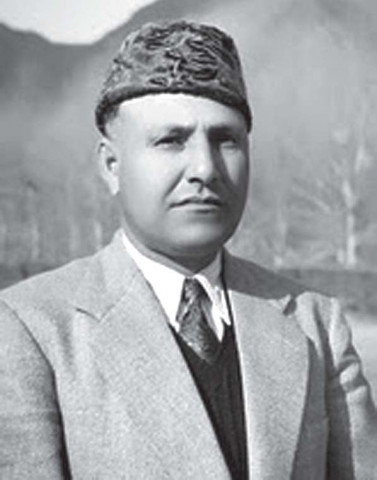Last ruler of Swat: Jahanzeb, a visionary who educated and loved his people
Swatis recall the late Wali’s liberal approach towards socio-political matters.

On the Wali’s 23rd death anniversary, a grand programme “Memar-e-Swat” (founder of Swat) was held at the auditorium of Khpal Kor Foundation.
The ceremony, first of its kind, was organized by Khpal Kor Foundation, Svastu Arts and Culture Association, Global Peace Council and Swat Education Development Society, and attended by elders and scholars of the region, as they paid their tribute to the “farsighted” ruler.
Ziauddin Yousafzai, a social activist and educationist, said that before Jahanzeb’s era, Swat did not have a modern education system. Bacha laid the foundations of the modern education system in Swat, which was rapidly developed by his son later on. The Wali founded a girls’ high school in Saidu Sharif which is the first female educational institution of the tribal belt, he said. “Jahanzeb College for Men has the importance of Alligarh College in the entire Malakand divison. He also established a missionary school at Sangota for girls,” Yousafzai added.
(Read: Overlooked: Already neglected, govt schools now face closure)
For his unending love for knowledge he was given the title of Sultanul Uloom (master of knowledge) by the people of Swat and was awarded an honorary degree of LLD (Doctor of Laws) by the University of Peshawar. Ziauddin added that the Wali was a talent hunter and had a knack for summoning intelligent people for services from all over Pakistan. He said, “[The Wali] would personally call those parents whose children would not go to school.”
Former provincial minister and grandson of the late ruler, Miangul Adnan Aurangzeb, said, “He lived for 80 years in which he built a legacy of 800 years with his deeds. He loved education and wished the same for his people as he did for us.”
He was a man of principle who wanted the best for his state, Aurangzeb added. Giving an example of his ruling period, Aurangzeb said that a road was tendered for Rs21,000, but on the very second day after Swat joined Pakistan, the same tender was increased to Rs140,000.
Speaking about the late ruler’s interest in the preservation of Swat’s rich cultural heritage, Usman Ulas Yar, Chairperson Svastu Arts, and Cultural Association said the Wali knew the importance of culture and heritage and during his time, cultural dance shows and festivals on Eid were conducted under the government’s protection.
The architectural style unique to Swat was maintained, the Chairperson added, and the buildings were provided with all basic facilities. “The ruler had also signed an agreement with the Italian government for exploring ruins and had also established a museum,” he added.
Published in The Express Tribune, September 26th, 2011.













COMMENTS
Comments are moderated and generally will be posted if they are on-topic and not abusive.
For more information, please see our Comments FAQ